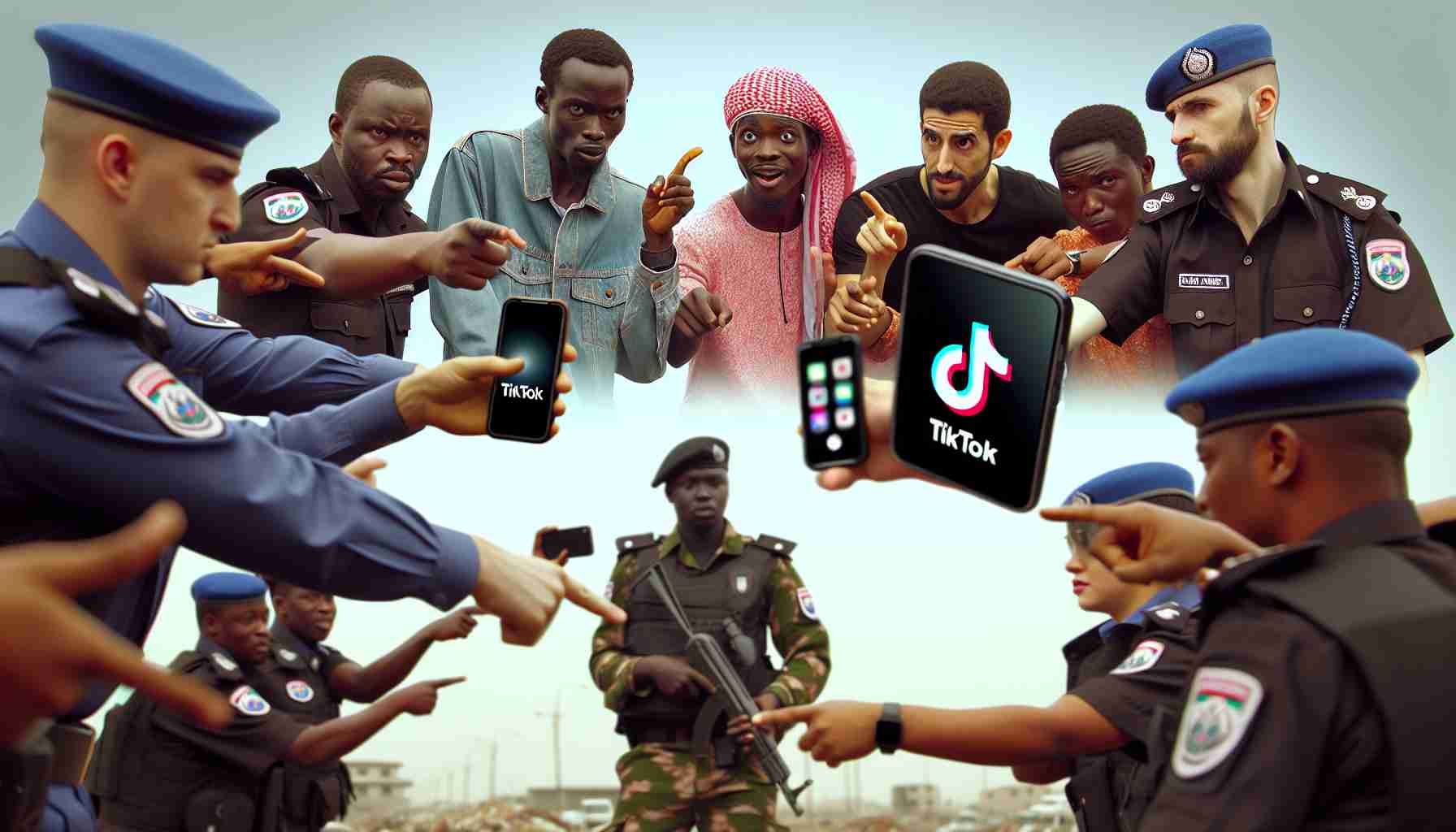In a recent case that has sparked controversy, Nigerian police spokesperson ACP Olumuyiwa Adejobi has vowed to crack down on a group of LGBT individuals featured in a viral video on social media. The video in question was part of the popular TikTok “I am” challenge, where participants disclose their sexuality and gender identity.
In a statement addressing the video, Adejobi condemned the participants, labeling them as “criminals” engaged in “unnatural offenses.” The Nigeria Police Director of News even issued arrest orders for the individuals identified in the video, citing various sections of the Nigerian Criminal Code Act and the Same-Sex Marriage (Prohibition) Act as justification for their actions.
However, this response has drawn criticism from LGBT activists and others who argue that the police’s interpretation of the law is misguided. The Criminal Code only criminalizes specific acts such as “carnal knowledge against the order of nature” and “gross indecency with another male person,” while the Same-Sex Marriage (Prohibition) Act only prohibits same-sex marriage itself. Simply identifying as lesbian, gay, bisexual, or transgender is not illegal.
The police’s threats and the subsequent call for Nigerians to report any suspected LGBT individuals and activities further illustrate the ongoing persecution faced by LGBT individuals in Nigeria. This environment of fear and intolerance hinders the freedom of expression and self-acceptance for those who identify as queer.
It remains unclear what specific crime the police are charging the video participants with, but their actions serve as a stark reminder of the challenges that LGBT individuals still face in the country. Society must progress towards a more accepting and inclusive future, where individuals are allowed to express their true selves without fear of persecution or punishment.
FAQ Section:
1. What is the recent controversy surrounding Nigerian police spokesperson ACP Olumuyiwa Adejobi?
ACP Olumuyiwa Adejobi has vowed to crack down on a group of LGBT individuals featured in a viral video on social media.
2. What was the video that sparked the controversy?
The video was part of the popular TikTok “I am” challenge, where participants disclose their sexuality and gender identity.
3. How did Adejobi label the participants in the video?
Adejobi condemned the participants, labeling them as “criminals” engaged in “unnatural offenses.”
4. What legal justifications did the Nigeria Police Director of News cite for issuing arrest orders?
The Director of News cited various sections of the Nigerian Criminal Code Act and the Same-Sex Marriage (Prohibition) Act as justification for their actions.
5. Are there critiques of the police’s interpretation of the law?
Yes, LGBT activists and others argue that the police’s interpretation of the law is misguided. The Criminal Code only criminalizes specific acts, while the Same-Sex Marriage (Prohibition) Act only prohibits same-sex marriage itself. Simply identifying as LGBTQ+ is not illegal.
6. What does the police’s response reveal about the treatment of LGBT individuals in Nigeria?
The police’s threats and call for Nigerians to report suspected LGBT individuals and activities further illustrate the ongoing persecution faced by LGBT individuals in the country.
7. What does this environment of fear and intolerance hinder?
This environment hinders the freedom of expression and self-acceptance for those who identify as queer.
8. What specific crime are the police charging the video participants with?
It remains unclear what specific crime the police are charging the video participants with.
Definitions:
1. LGBT: An acronym that stands for lesbian, gay, bisexual, and transgender.
2. TikTok: A popular social media platform known for its short-form videos.
Suggested Related Links:
– Human Rights Watch: Nigeria’s Escalating LGBT Persecution
– Amnesty International: Nigeria Country Report
– UN Free & Equal: Nigeria
The source of the article is from the blog bitperfect.pe
